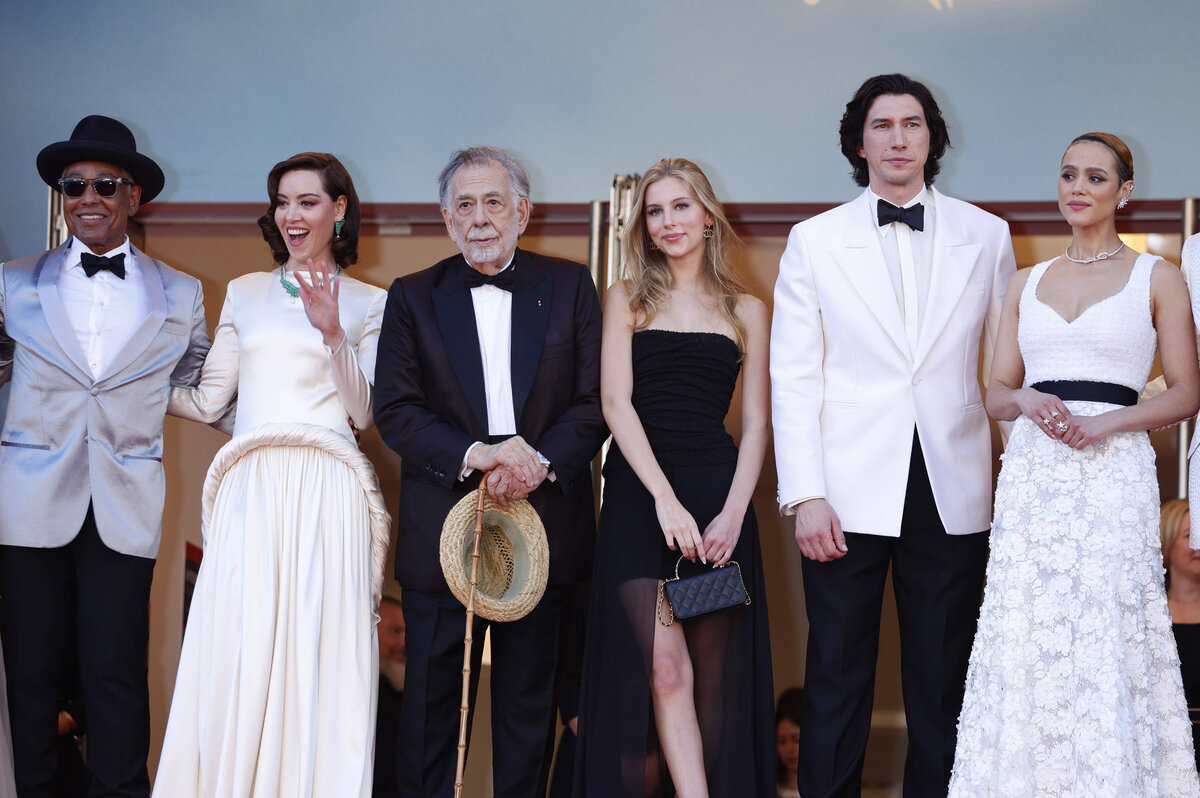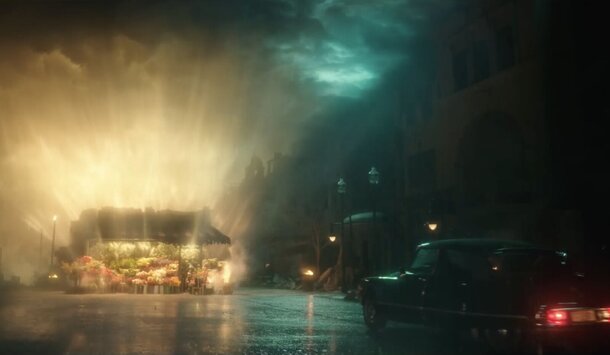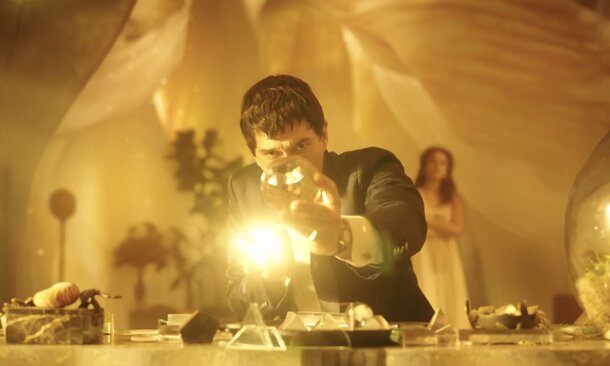«Megalopolis» - Film Review by Kinoafisha

The long-awaited project of the master of American cinema turned out to be a complete failure.
At the 77th Cannes Film Festival, the long-suffering, highly anticipated, and very expensive project "Megalopolis" by Francis Ford Coppola premiered. The very title speaks of its scale and grandeur, and nothing less was expected from the master of American cinema. However, the film was loudly booed by the press after the screening. Let's explore what went wrong with this film.
The plot revolves around the fantastically brilliant architect Caesar Catalina, who lives by his ideas and ambitions. After the destruction of the megacity New Rome, he dreams of rebuilding it into a utopian center of life. He can stop time, making the new contours of the city come easily to him. However, the corrupt mayor Franklin Cicero views the world differently, believing more attention should be given to the poor by providing them with jobs, housing, and food. There's no need to wait for a new city to be built. Watching their conflict from the sidelines is the mayor's daughter, Julia, who becomes sympathetic to Caesar. This greatly displeases her father, but perhaps love can help create a truly beautiful future where all sides are satisfied?
Caesar stands atop the futuristic Empire State Building, looking down at the city's outlines. He stops time to imagine how the city could transform when there is no noise, no wandering people, and the wind does not interfere. Grandiose, beautiful, and utterly useless. These wandering people might not dream of an Eden-like garden near their home but of timely salaries and food on the table. But do architectural geniuses from wealthy families care about such things?

His great-uncle, Hamilton Crass III, is the richest man in New Rome and the owner of the city's main bank. Money flows freely, so Caesar doesn't need to worry about finances. But what is he actually trying to build? What was Francis Ford Coppola trying to create when he started writing the script for this film?
The idea for "Megalopolis" came to Coppola after filming "Apocalypse Now", so in the early 1980s, he quickly got to work on the script and finished it fairly quickly. The director was always fascinated by Fritz Lang's "Metropolis" and William Cameron's "Things to Come", and inspired by these two works, he wanted to create something equally epic. However, achieving this goal took him more than 40 years, mainly because Coppola prioritized other projects and because when he was ready to make the film, the events of September 11 happened, forcing him to pause production again.

In 2021, he announced the start of production with a budget of $120 million, which he planned to spend out of his own pocket. Such dedication to the project and the idea itself can only evoke sympathy. On the other hand, the director can be compared to his protagonist. It's no coincidence that Caesar and Julia plan to name their child Francis in the film—this is how the director leaves a part of himself in his created story.
So, what about the film itself? The movie resembles a mishmash of unevenly glued frames, a play with forms, breaking the fourth wall, theatricality, and endless script reading without any real acting. Following the motivations and actions of the characters is nearly impossible. The ensemble, dressed in neo-Roman costumes, just seems to be having fun during the plague. It's a destructive "La Dolce Vita" with no beginning and certainly no end. Absurd futurism takes center stage, while Coppola's interest in where American society is heading and whether it faces a fate similar to that of the Roman Empire recedes into the background.

If you completely ignore the technical and acting aspects of the film, the aftertaste is very bitter and sour. It fills you with fear if this is indeed the reality of modern society. It's a continuous destructiveness filled with hedonistic everyday life, where golden costumes have no end. It very much resembles the last Met Gala, only there it was all in flowers. No, Coppola still believes in a bright future and that humanity will find a compromise with itself. Hence, his film ends with Caesar and Cicero reconciling and the two families uniting. Utopia was achieved after all.
